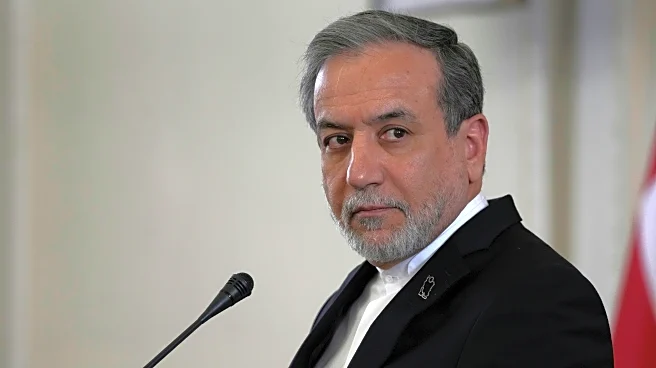Rapid Read • 8 min read
OpenAI is intensifying its focus on healthcare AI by expanding its team with new leadership hires. Nate Gross, co-founder of Doximity, has joined OpenAI to lead its healthcare go-to-market strategy, aiming to co-create new technologies with clinicians and researchers. Ashley Alexander, former co-head of product at Instagram, has been appointed as vice president of product in the health business, focusing on building technology for consumers and clinicians. OpenAI's recent initiatives include partnerships and the development of AI models like GPT-5, which are designed to assist healthcare professionals and patients. The company is committed to improving human health through artificial general intelligence, as evidenced by its HealthBench benchmark for evaluating AI systems in healthcare.
AD
OpenAI's expansion into healthcare AI signifies a growing trend of integrating advanced technologies into the medical field. This move could potentially revolutionize patient care by providing tools that assist in diagnosis, treatment planning, and patient education. The involvement of AI in healthcare promises to enhance efficiency and accuracy, offering significant benefits to both providers and patients. However, the adoption of AI in healthcare also raises concerns about reliability and safety, as errors in AI recommendations could have serious consequences. OpenAI's efforts to address these challenges and improve healthcare outcomes could set a precedent for other tech companies entering the healthcare sector.
OpenAI is expected to continue developing its healthcare AI capabilities, with potential collaborations and studies to further integrate AI into clinical settings. The company's partnership with Penda Health and participation in initiatives like the White House's health tech event indicate ongoing efforts to expand its influence in healthcare. As AI technology evolves, OpenAI may face scrutiny from medical professionals and regulatory bodies to ensure the safety and efficacy of its AI tools. The success of these initiatives could lead to broader acceptance and implementation of AI in healthcare, potentially transforming the industry.
The integration of AI into healthcare raises ethical and legal questions about data privacy and the role of technology in patient care. OpenAI's approach to developing AI tools that complement rather than replace medical professionals highlights the importance of maintaining human oversight in healthcare decisions. The company's focus on creating AI systems that enhance patient understanding and engagement reflects a shift towards more patient-centered care. As AI becomes more prevalent in healthcare, ongoing discussions about its implications for medical practice and patient rights will be crucial.
AD
More Stories You Might Enjoy











